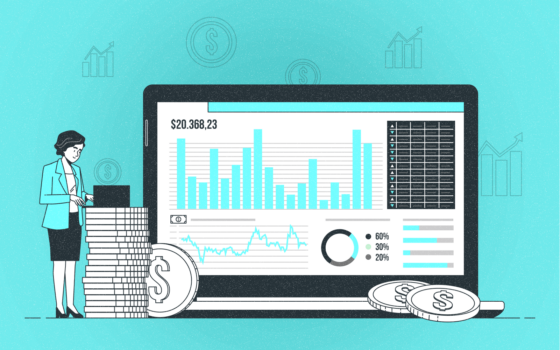HIPAA
Understanding HIPAA: A Comprehensive Guide for HR Professionals
In the realm of human resources, few acronyms carry as much weight as HIPAA. The Health Insurance Portability and Accountability Act, commonly known as HIPAA, has been a cornerstone of healthcare privacy and security since its enactment in 1996. As an HR professional, understanding HIPAA is not just important—it's essential. This comprehensive guide will delve into the intricacies of HIPAA, its impact on HR practices, and how to ensure compliance in your organization.
What is HIPAA?
HIPAA is a federal law designed to provide data privacy and security provisions for safeguarding medical information. It was originally enacted to improve the portability and continuity of health insurance coverage, but its scope has expanded significantly over the years.
The Act consists of five titles, each addressing different aspects of healthcare reform:
- Title I: Health Care Access, Portability, and Renewability
- Title II: Preventing Health Care Fraud and Abuse; Administrative Simplification; Medical Liability Reform
- Title III: Tax-related Health Provisions
- Title IV: Application and Enforcement of Group Health Plan Requirements
- Title V: Revenue Offsets
For HR professionals, Title II is particularly relevant as it includes the Privacy Rule and the Security Rule, which directly impact how organizations handle protected health information (PHI).
Key Components of HIPAA
The Privacy Rule
The Privacy Rule establishes national standards for the protection of individuals' medical records and other personal health information. It applies to health plans, healthcare providers, and healthcare clearinghouses. The rule requires appropriate safeguards to protect the privacy of personal health information and sets limits and conditions on the uses and disclosures of such information without patient authorization.
The Security Rule
The Security Rule complements the Privacy Rule by setting national standards for protecting electronic protected health information (ePHI). It requires covered entities to implement appropriate administrative, physical, and technical safeguards to ensure the confidentiality, integrity, and availability of ePHI.
The Enforcement Rule
This rule sets forth the process for enforcing HIPAA rules by the Department of Health and Human Services (HHS). It outlines the procedures for investigating complaints and the penalties for non-compliance.
HIPAA's Impact on HR Practices
For HR professionals, HIPAA compliance is a critical aspect of managing employee health information. Here are some key areas where HIPAA intersects with HR responsibilities:
Employee Health Plans
If your organization sponsors a group health plan, you're likely considered a "covered entity" under HIPAA. This means you must comply with the Privacy and Security Rules in managing employee health information related to the plan.
Medical Leave Management
When handling medical leave requests, HR professionals often come into contact with employees' health information. It's crucial to ensure that this information is protected in accordance with HIPAA regulations.
Wellness Programs
Many companies offer wellness programs as part of their benefits package. These programs often involve collecting health-related information from employees, which must be handled in compliance with HIPAA.
Employee Assistance Programs (EAPs)
EAPs that provide health care services (such as mental health counseling) may be subject to HIPAA regulations. HR professionals need to ensure that these programs are structured and managed in a HIPAA-compliant manner.
Ensuring HIPAA Compliance in HR
Complying with HIPAA can seem daunting, but with the right approach, it's entirely manageable. Here are some steps HR professionals can take to ensure HIPAA compliance:
1. Conduct a Risk Assessment
Regularly assess your organization's practices for handling PHI. Identify potential vulnerabilities and develop strategies to address them.
2. Implement Robust Security Measures
Ensure that all ePHI is protected through encryption, secure networks, and access controls. This includes both technical measures and physical safeguards for devices and documents containing PHI.
3. Develop and Enforce Policies and Procedures
Create comprehensive policies that outline how PHI should be handled, stored, and transmitted within your organization. Regularly review and update these policies to ensure they remain effective and compliant.
4. Train Employees
Provide thorough HIPAA training to all employees who handle PHI. This training should be ongoing and updated as regulations change.
5. Manage Business Associate Relationships
If your organization works with third-party vendors who have access to PHI, ensure that proper business associate agreements are in place and that these partners are HIPAA-compliant.
6. Establish a Breach Notification Process
Develop a plan for responding to potential data breaches. This should include steps for investigating the breach, notifying affected individuals, and reporting to the HHS when necessary.
Common HIPAA Pitfalls in HR
Even with the best intentions, HR departments can sometimes run afoul of HIPAA regulations. Here are some common mistakes to avoid:
Oversharing Employee Health Information
It's crucial to limit the sharing of employee health information to only those who have a legitimate need to know. This includes being cautious about discussions with managers or coworkers about an employee's health status.
Improper Disposal of PHI
PHI must be disposed of securely. This means shredding physical documents and properly wiping electronic devices before disposal or reuse.
Inadequate Security for Electronic Communications
Emails and other electronic communications containing PHI should be encrypted. Avoid sending PHI through unsecured channels like personal email accounts or text messages.
Failure to Obtain Proper Authorization
In most cases, you need an employee's written authorization to use or disclose their PHI for purposes not related to treatment, payment, or healthcare operations.
Neglecting to Update Policies and Procedures
HIPAA regulations can change, and your policies need to keep pace. Regularly review and update your HIPAA compliance strategies.
The Cost of Non-Compliance
Failing to comply with HIPAA can have severe consequences for organizations. Penalties for non-compliance can include:
- Civil monetary penalties ranging from $100 to $50,000 per violation (with an annual maximum of $1.5 million)
- Criminal penalties including fines up to $250,000 and imprisonment for up to 10 years
- Reputational damage and loss of trust from employees and customers
- Potential lawsuits from affected individuals
Given these high stakes, investing in robust HIPAA compliance measures is not just a legal requirement—it's a sound business decision.
HIPAA in the Digital Age
As technology continues to evolve, so do the challenges of HIPAA compliance. HR professionals must stay abreast of new developments and their implications for protecting PHI. Some emerging areas of concern include:
Cloud Storage
Many organizations are moving to cloud-based systems for storing and managing employee data. While cloud storage can offer enhanced security features, it's crucial to ensure that your cloud service provider is HIPAA-compliant and that proper safeguards are in place.
Mobile Devices
The increasing use of smartphones and tablets in the workplace presents new risks for PHI security. Implement strong policies around the use of mobile devices for accessing or storing PHI, including encryption and remote wiping capabilities.
Telemedicine
With the rise of telemedicine, especially in the wake of the COVID-19 pandemic, HR professionals may need to navigate new territory in terms of managing health information related to virtual healthcare services.
Artificial Intelligence and Data Analytics
As AI and data analytics become more prevalent in healthcare and HR, it's important to consider how these technologies interact with HIPAA regulations, particularly in terms of data access and usage.
The Future of HIPAA
As the healthcare landscape continues to evolve, it's likely that HIPAA will undergo further changes to address new challenges and technologies. HR professionals should stay informed about proposed amendments and be prepared to adapt their practices accordingly.
Some potential areas for future HIPAA developments include:
- Enhanced interoperability standards to facilitate secure sharing of health information across different systems
- Stricter regulations around the use of PHI in research and data analytics
- Updated guidelines for emerging technologies like blockchain and Internet of Things (IoT) devices in healthcare
- Increased focus on patient rights and control over their health information
Conclusion
HIPAA compliance is a complex but crucial aspect of HR management. By understanding the law's requirements, implementing robust policies and procedures, and staying vigilant about emerging challenges, HR professionals can play a vital role in protecting employee health information and ensuring organizational compliance.
Remember, HIPAA compliance is not a one-time effort but an ongoing process. Regular training, audits, and policy reviews are essential to maintaining a culture of compliance and protecting your organization from the serious consequences of HIPAA violations.
As an HR professional, your role in HIPAA compliance is critical. By mastering the intricacies of HIPAA and staying informed about its evolving landscape, you can help your organization navigate the complexities of health information privacy and security, ultimately contributing to a culture of trust and compliance.


